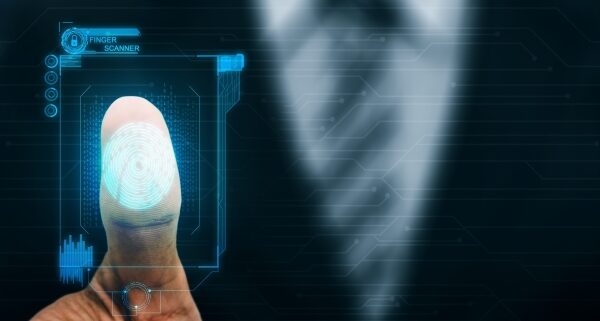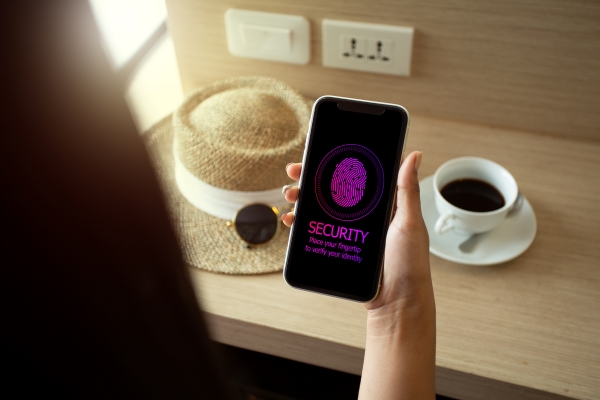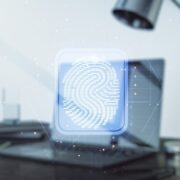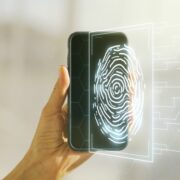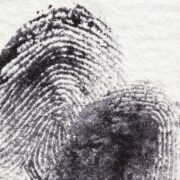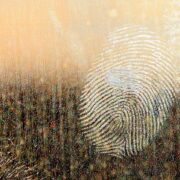A Complete Guide To Understanding Livescan Fingerprinting in Florida
Livescan fingerprinting is an important part of many law enforcement investigations. In Florida, livescan fingerprinting has been used since 2005 as a way to identify individuals and their criminal record histories.
This technology has revolutionized the way that police can track suspects, especially in cases involving multiple jurisdictions. Here’s a complete guide to understanding Livescan fingerprinting in Florida so you can ensure your information is accurate and up-to-date:
Livescan Fingerprinting: What You Need to Know
Livescan fingerprinting has become an increasingly popular method of obtaining fingerprints for a variety of purposes, from background checks to security clearances. But what exactly is Livescan fingerprinting, and how does it work? If you’re looking for answers to these questions and more, you’ve come to the right place.
In this ultimate guide to Livescan fingerprinting, we’ll give you everything you need to know about this powerful technology. We’ll cover the basics of how it works, the different types of Livescan fingerprinting systems available, and the pros and cons of using Livescan fingerprinting for your specific needs.
Whether you’re a job seeker looking to pass a background check or an employer looking to ensure the safety and security of your workplace, understanding Livescan fingerprinting is essential. So let’s dive in and explore the ultimate guide to Livescan fingerprinting together!
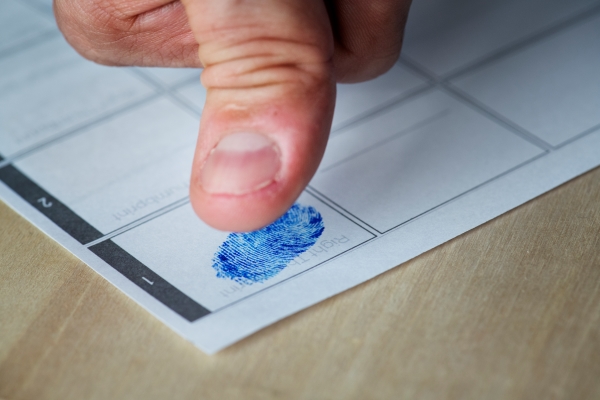
What Is Livescan Fingerprinting?
Livescan fingerprinting is a digital method of capturing fingerprints that has largely replaced the traditional ink and paper method. It uses a specialized scanner to capture a high-resolution digital image of a person’s fingerprints, which can then be analyzed and compared to other fingerprints in a database.
Livescan fingerprinting is used for a variety of purposes, including criminal background checks, employment screening, and security clearances. The fingerprints captured through Livescan fingerprinting can also be used for identification purposes, such as when obtaining a passport or other government-issued identification.
The Livescan fingerprinting process is relatively quick and easy. The person being fingerprinted simply places their fingers on the scanner, and the scanner captures the images of their fingerprints. The process is non-invasive and does not require any messy ink or paper. Once the fingerprints are captured, they are sent electronically to a database for analysis.
There are a few key advantages to using Livescan fingerprinting over traditional ink and paper methods. First, livescan fingerprinting is much faster than traditional methods, as the images can be captured and analyzed almost instantly. Second, livescan fingerprinting is more accurate than traditional methods, as the digital images are clearer and more detailed than ink and paper fingerprints. Finally, livescan fingerprinting is more convenient than traditional methods, as it does not require any messy ink or paper.
How Does Livescan Fingerprinting Work?
Livescan fingerprinting works by using a specialized scanner to capture a digital image of a person’s fingerprints. The scanner uses a combination of light and electronic sensors to capture the ridges, whorls, and other unique characteristics of a person’s fingerprints. Once the images are captured, they are stored electronically and can be analyzed and compared to other fingerprints in a database.
The Livescan fingerprinting process typically takes just a few minutes to complete. The person being fingerprinted places their fingers on the scanner, and the scanner captures the images of their fingerprints. The images are then sent electronically to a database for analysis.
One of the key advantages of Livescan fingerprinting is that it is much faster than traditional ink and paper methods. With livescan fingerprinting, the images can be captured and analyzed almost instantly, whereas traditional methods can take days or even weeks to process.
Types Of Livescan Fingerprinting Systems
There are several different types of Livescan fingerprinting systems available, each with its unique features and capabilities. Some of the most common types of livescan fingerprinting systems include:
Optical Livescan Systems
These systems use a light source and a digital camera to capture images of a person’s fingerprints. They are typically less expensive than other types of systems, but may not be as accurate or reliable.
Capacitive Livescan Systems
These systems use an electronic sensor to capture images of a person’s fingerprints. They are typically more expensive than optical systems but are more accurate and reliable.
Thermal Livescan Systems
These systems use heat and pressure to capture images of a person’s fingerprints. They are typically used in high-security applications, such as government agencies and law enforcement.
Ultrasonic Livescan Systems
These systems use sound waves to capture images of a person’s fingerprints. They are typically used in high-security applications, such as government agencies and law enforcement.

Pros And Cons Of Using Livescan Fingerprinting
Like any technology, livescan fingerprinting has its pros and cons. Some of the key advantages of using livescan fingerprinting include:
Speed
Livescan fingerprinting is much faster than traditional ink and paper methods, as the images can be captured and analyzed almost instantly.
Accuracy
Livescan fingerprinting is more accurate than traditional methods, as digital images are clearer and more detailed than ink and paper fingerprints.
Convenience
Livescan fingerprinting is more convenient than traditional methods, as it does not require any messy ink or paper.
Security
Livescan fingerprinting is more secure than traditional methods, as digital images can be encrypted and stored securely.
However, there are also some potential drawbacks to using livescan fingerprinting. These include:

Cost
Livescan fingerprinting systems can be expensive, particularly for smaller organizations or individuals.
Dependence On Technology
Livescan fingerprinting systems require specialized equipment and software, which can be vulnerable to technical issues or malfunctions.
Privacy Concerns
Some people may be uncomfortable with the idea of having their fingerprints stored electronically, particularly if they are used for purposes beyond identification or background checks.
Livescan Fingerprinting For Job Seekers
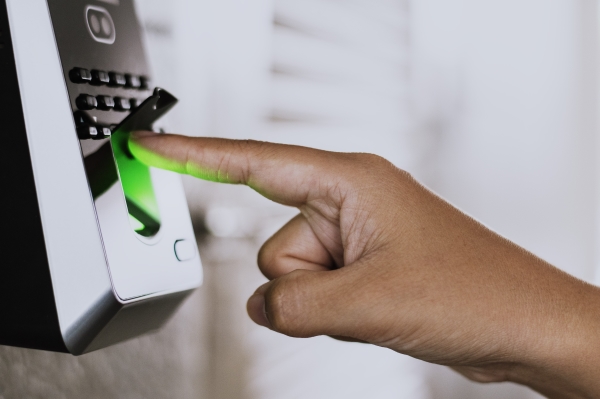
Livescan fingerprinting is Visit Site becoming increasingly common as part of the employment screening process. Many employers now require job applicants to undergo a criminal background check before they can be hired, and livescan fingerprinting is often used as part of the screening process.
For job seekers, the livescan fingerprinting process is typically straightforward. They will be asked to provide their fingerprints using a livescan scanner, and the images will be sent to a database for analysis.
If the background check comes back clear, the job seeker can continue with the hiring process. However, if the background check reveals any criminal history or other red flags, the job seeker may not be hired.
Livescan Fingerprinting For Employers
Livescan fingerprinting can also be used by employers to ensure the safety and security of their workplace. Many employers now require employees to undergo regular background checks and may use livescan fingerprinting as part of the process.
For employers, livescan fingerprinting can help reduce the risk of workplace violence or other security threats. By screening employees and job candidates for criminal history or other red flags, employers can identify potential risks before they become a problem.
Livescan Fingerprinting For Government Agencies
Livescan fingerprinting is also commonly used by government agencies for a variety of purposes, including criminal investigations, security clearances, and identification. In many cases, livescan fingerprints are stored in a database and can be used to identify suspects or match fingerprints found at crime scenes.
For government agencies, livescan fingerprinting is a powerful tool for maintaining public safety and security. By capturing and analyzing high-quality digital images of fingerprints, agencies can quickly and accurately identify suspects and track their movements.
Livescan Fingerprinting Vs. Traditional Ink And Paper Fingerprinting
While livescan fingerprinting has largely replaced traditional ink and paper methods, there are still some situations where ink and paper fingerprints may be used. For example, in some jurisdictions, ink and paper fingerprints may still be required for certain types of criminal cases or for obtaining certain types of identification.
However, for most purposes, livescan fingerprinting is now the preferred method. It is faster, more accurate, and more convenient than traditional methods, and is becoming increasingly common across a wide range of industries and applications.
Livescan Fingerprinting Regulations And Laws
It’s important to note that livescan fingerprinting is subject to a variety of regulations and laws at the federal, state, and local levels. These regulations and laws govern how to livescan fingerprinting can be used, who can access the data, and how it must be stored and protected.
If you are planning to use livescan fingerprinting for any purpose, it’s important to familiarize yourself with the relevant laws and regulations in your area. This will help ensure that you are using the technology legally and ethically, and will help protect the privacy and security of the individuals whose fingerprints are being captured.
In conclusion, livescan fingerprinting is a powerful technology that is becoming increasingly common across a wide range of industries and applications. Whether you are a job seeker, an employer, or a government agency, understanding how livescan fingerprinting works and its pros and cons are essential.
By taking the time to learn about this technology and how it can be used, you can ensure that you are making informed decisions and using it legally and ethically.
Why Is Livescan Fingerprinting Used In Florida?
Livescan fingerprinting is used by police departments in Florida to ensure that criminal records are accurate. Because livescan fingerprinting captures high-quality images of each finger, it has become the preferred method for verifying identity.
It also eliminates the need for physical ink fingerprints, which can be difficult to store and transport across jurisdictional lines.
The Power Of Precision: How Livescan Fingerprinting Is Revolutionizing Florida’s Background Check System
In today’s world, where security has become increasingly important, background checks have become a crucial part of the hiring process. With Livescan fingerprinting, the state of Florida is revolutionizing its background check system.
Livescan fingerprinting is a digital system that captures fingerprints and other information in a matter of seconds, making it an efficient and reliable way to screen potential employees. Not only does it make the process quicker, but it also eliminates errors that can occur with traditional fingerprinting methods.
In this section, we’ll explore the power of precision that Livescan fingerprinting brings to the table and how it’s changing the way employers conduct background checks in Florida. We’ll look at the technology behind Livescan fingerprinting, its benefits, and the impact it’s having on the hiring process.
Understanding The Traditional Fingerprinting Process And Its Limitations
Traditional fingerprinting involves taking inked impressions of an individual’s fingers on a card, which is then sent to a lab for analysis. This method can be time-consuming, and the cards can be easily damaged or lost in transit.
Additionally, inked fingerprinting is not always accurate, as smudging or smearing can occur during the process. The traditional fingerprinting process can also be a hassle for applicants, as they have to travel to a specific location to get their fingerprints taken, and the process can take up a significant amount of their time.
Livescan Fingerprinting Vs. Traditional Fingerprinting – A Comparison
Livescan fingerprinting is a digital process that eliminates the need for ink and paper. Instead, a Livescan machine captures the fingerprint images digitally and sends them to a database for analysis. The process is quick, taking only a few minutes to complete, and the digital images are much clearer and more accurate than inked impressions.
Because there is no ink involved, there is no risk of smudging or smearing, and there is no need to wait for the ink to dry before sending the cards off for analysis. With Livescan fingerprinting, the results are available almost instantly, which can speed up the hiring process significantly.
Livescan Fingerprinting And The Hiring Process In Florida – Legal Requirements And Regulations
In Florida, Livescan fingerprinting is mandatory for certain types of jobs, such as those in education, healthcare, and law enforcement.
Employers in these industries are required to conduct background checks on potential employees, and Livescan fingerprinting is a crucial component of that process. Livescan fingerprinting is also used for other purposes, such as obtaining a concealed carry permit or becoming a foster parent.
The state of Florida has strict regulations in place to ensure that the results of Livescan fingerprinting are accurate and reliable. The Florida Department of Law Enforcement oversees the process and ensures that Livescan providers meet the state’s standards.
Impact Of Livescan Fingerprinting On Reducing Criminal Activity In The Workplace
One of the most significant benefits of Livescan fingerprinting is that it can help reduce criminal activity in the workplace. By conducting thorough background checks on potential employees, employers can identify individuals who have a criminal history and take steps to prevent them from being hired.
Livescan fingerprinting is a reliable way to identify individuals who have been convicted of crimes, as the fingerprints are matched against a database of criminal records. By weeding out individuals with a criminal history, employers can create a safer work environment for their employees.
Livescan Fingerprinting And Employee Privacy – Addressing Concerns
Some individuals may be concerned about the privacy implications of Livescan fingerprinting. However, it’s important to note that the fingerprints collected during the Livescan process are not stored permanently. The images are sent to a database for analysis, and then they are deleted. The information is only used for background checks, and it’s not shared with any third parties.
Additionally, employers are required to obtain consent from potential employees before conducting a background check, which includes fingerprinting. Individuals can also request a copy of their background check results, which can help to ensure that the information is accurate.
Livescan Fingerprinting Services – Finding The Right Provider
If you’re an employer in Florida, it’s crucial to find a reliable Livescan fingerprinting provider. There are many providers to choose from, and it’s important to do your research before selecting one.
Look for a provider that has a good reputation and meets the state’s standards for Livescan fingerprinting. You should also consider the provider’s location, as you’ll need to send your potential employees to the provider to have their fingerprints taken. Finally, consider the provider’s pricing, as there can be significant differences between providers.
Livescan Fingerprinting As A Game-Changer In Florida’s Security Landscape
Livescan fingerprinting is a game-changer in Florida’s security landscape. By providing a quick and reliable way to conduct background checks, Livescan fingerprinting is helping employers to create safer work environments and reduce criminal activity.
The technology behind Livescan fingerprinting is impressive, and it’s clear that it’s changing the way employers conduct background checks in Florida. If you’re an employer in Florida, it’s crucial to stay up-to-date with the latest technology and regulations surrounding Livescan fingerprinting. By doing so, you can ensure that your hiring process is efficient, accurate, and reliable.
What Does The Livescan Process Look Like In Florida?
In most cases, livescan submission is a three-step process: capture, review, and submission. During capture, livescan technology captures an image of each fingertip directly off a scanner’s glass plate.
After capture, an official review is conducted to ensure the quality of each image. Finally, the livescan submission is sent to the Florida Department of Law Enforcement (FDLE) for processing. The FDLE then notifies local law enforcement agencies if a criminal record has been identified.
Fingerprints submitted electronically through livescan technology are processed faster than the traditional method of capturing an impression with ink and paper. State agencies also prefer livescan fingerprints due to their accuracy and cost-effectiveness.
What Are The Benefits Of Livescan Fingerprinting?
Livescan fingerprinting in Florida offers several benefits. First, it’s fast and efficient. In most cases, livescans can be submitted within minutes and results are returned quickly.
Additionally, livescans provide high-quality fingerprints that can be used in investigations across jurisdictional lines. It also eliminates the need for physical ink prints, which can be difficult to store or transport over long distances.
In today’s world, background checks have become a mandatory part of the hiring process. Among the various methods of conducting background checks, livescan fingerprinting has emerged as a popular choice for employers and employees alike. Livescan fingerprinting is a digital process that captures and stores fingerprints electronically, making it an efficient and reliable way to verify an individual’s identity and criminal history. But what are the benefits of livescan fingerprinting over other methods?
In this section, we will explore the top benefits of livescan fingerprinting for employers and employees. From faster processing times to increased accuracy, livescan fingerprinting has a lot to offer for those seeking a secure and reliable background check process. So, let’s dive in and discover why livescan fingerprinting could be the perfect solution for your hiring needs.
Benefit 1: Increased Accuracy And Reliability
The biggest advantage of livescan fingerprinting is its accuracy and reliability. Livescan fingerprinting is a digital process that captures fingerprints electronically, making it significantly more accurate than traditional ink and roll fingerprinting. The electronic capturing process is designed to ensure that the image captured is of the highest quality, which helps to eliminate any errors or inaccuracies that may occur with traditional fingerprinting methods.
Moreover, livescan fingerprinting is not just accurate, but also reliable. The fingerprints captured through livescan are stored electronically, which means there is no chance of them being lost or misplaced. The electronic storage also ensures that the fingerprints are available for future use, making it easier to conduct subsequent background checks.
In summary, the accuracy and reliability of livescan fingerprinting are unmatched when compared to other background check methods.
Benefit 2: Faster Processing Times
Another significant benefit of livescan fingerprinting is its faster processing times. Unlike traditional fingerprinting methods, which can take several days or even weeks to process, livescan fingerprinting can provide results within a matter of hours. This speed can be especially beneficial for employers who need to conduct background checks quickly.
The faster processing times are due to the electronic capturing process, which eliminates the need for manual processing. The fingerprints are captured digitally, and the results are transmitted electronically to the appropriate agencies for processing. This process significantly reduces the time needed to process the fingerprints and conduct the background check.
For consumer services, livescan fingerprinting can provide results within minutes, making it the perfect choice for those seeking immediate background checks.
Overall, the faster processing times offered by livescan fingerprinting make it an ideal choice for those who need results quickly.
Benefit 3: Cost-Effectiveness
Livescan fingerprinting is also cost-effective when compared to other background check methods. Traditional fingerprinting methods can be expensive due to the manual processing involved. In contrast, livescan fingerprinting is an electronic process that requires less manual labor, making it more cost-effective.
Additionally, livescan fingerprinting reduces the risk of errors or inaccuracies, which can result in additional costs associated with reprocessing or redoing the background check. By using livescan fingerprinting, employers can save money on background checks and ensure that they are getting the most accurate results possible.
In summary, livescan fingerprinting is a cost-effective alternative to traditional fingerprinting methods.
Benefit 4: Compliance With Industry Regulations
Livescan fingerprinting is also compliant with industry regulations, making it a reliable choice for employers who need to meet specific compliance standards. Many industries, such as healthcare and finance, require employees to undergo a background check before they can be hired. Livescan fingerprinting meets the requirements of these background checks and ensures that employers are compliant with industry regulations.
Moreover, livescan fingerprinting is a secure and reliable method of conducting background checks, which can help employers avoid potential legal issues associated with non-compliance.
The Department of Health in Florida requires livescan fingerprinting for certain professions, and this requirement is enforced by the Agency for Health Care Administration.
Overall, livescan fingerprinting ensures that employers meet industry regulations and avoid legal issues related to non-compliance.
Benefit 5: Convenience For Employees And Employers
Finally, livescan fingerprinting is convenient for both employees and employers. For employees, livescan fingerprinting is a quick and easy process that can be completed in a matter of minutes. The electronic capturing process is painless and does not require any ink or other messy materials.
For employers, livescan fingerprinting is also convenient. The electronic capturing process is quick and efficient, and the results are transmitted electronically, reducing the need for manual processing. Additionally, the electronic storage of fingerprints makes it easy to conduct subsequent background checks, which can save employers time and money.
In summary, livescan fingerprinting is a convenient and efficient method of conducting background checks for both employees and employers.
Comparison With Other Background Check Methods
While livescan fingerprinting offers many benefits over traditional fingerprinting methods, it is also essential to compare it with other background check methods. For example, some employers may prefer to use a national criminal database search, which can provide a broader range of criminal history information than a simple fingerprint check.
However, national criminal database searches are not always reliable and may contain incomplete or inaccurate information. Additionally, these searches may not meet industry regulations, making them unsuitable for certain industries.
Overall, livescan fingerprinting is a reliable and accurate method of conducting background checks that offer many benefits over other methods.
Common Misconceptions About Livescan Fingerprinting
Despite the many benefits of livescan fingerprinting, there are still some common misconceptions about the process. One of the most common misconceptions is that livescan fingerprinting is invasive and violates privacy. However, livescan fingerprinting is a non-invasive process that only captures fingerprints, which are used solely to conduct a background check.
Another misconception is that livescan fingerprinting is only used for criminal background checks. However, livescan fingerprinting can be used for a variety of purposes, including employment background checks, licensing purposes, and even volunteer positions.
In summary, while there may be some common misconceptions about livescan fingerprinting, it remains a reliable and efficient method of conducting background checks.
In conclusion, livescan fingerprinting offers many benefits for both employers and employees. From increased accuracy and reliability to faster processing times and cost-effectiveness, livescan fingerprinting is a secure and reliable method of conducting background checks. Additionally, livescan fingerprinting is compliant with industry regulations and is convenient for both employees and employers.
While there may be other background check methods available, livescan fingerprinting remains a top choice for those seeking a secure and reliable background check process. So, if you are an employer or employee looking for a reliable method of conducting a background check, consider livescan fingerprinting as your go-to solution.

What Are The Drawbacks?
The state agency requesting fingerprint submission must have livescan capability and accept electronic submission. Additionally, livescan fingerprinting may become expensive if there is a need to capture multiple sets of fingerprints.
While livescan fingerprinting is a reliable technology, there are some drawbacks to consider.
Drawback 1: Privacy Concerns
Livescan fingerprinting has become a common practice for many organizations as a means of verifying identity. However, it has also raised concerns about privacy rights. When an individual submits their fingerprints for a background check or other purpose, they are essentially giving their biometric data to a third party.
This information can include not only their fingerprints but also other personal information, such as their name, address, and date of birth. This data can then be used to create a digital record of the individual, which can be accessed by various organizations.
One of the main privacy concerns is the potential for misuse of this data. If the data falls into the wrong hands, it could be used for identity theft or other malicious purposes. Additionally, there is the potential for the data to be used in ways that the individual did not intend. For example, if the individual’s fingerprints are stored in a database, they may be used for future purposes without the individual’s knowledge or consent.
Another privacy concern is the potential for false positives. If an individual’s fingerprints are incorrectly matched to someone else’s, it could lead to serious consequences, such as being falsely accused of a crime or denied employment opportunities.
This can be especially problematic for individuals who have had their fingerprints taken for a previous background check or other purposes, as their data may already be in the system.
Despite these privacy concerns, livescan fingerprinting remains a popular method of identification. However, it’s important to be aware of the potential risks and take steps to protect your privacy.
Drawback 2: Accuracy Issues
While livescan fingerprinting is generally considered to be a highly accurate method of identification, there are still potential issues with accuracy that need to be considered. One of the main issues is the potential for errors in the fingerprinting process itself. If the individual’s fingerprints are not properly captured, the resulting scan may be incomplete or inaccurate.
Another issue is the potential for errors in the matching process. If the system used to match the fingerprints is not properly calibrated or maintained, it may produce inaccurate results. Additionally, if the fingerprints are compared manually, there is the potential for human error.
In some cases, the accuracy issues may be due to factors outside of the control of the livescan fingerprinting system itself. For example, if the individual’s fingers are dirty or wet, it may be more difficult to obtain an accurate scan. Additionally, if the individual has a medical condition that affects their fingerprints, such as eczema or psoriasis, it may be more difficult to obtain an accurate scan.
Despite these accuracy issues, livescan fingerprinting remains a widely used method of identification. However, it’s important to be aware of the potential risks and limitations of the technology.
Drawback 3: False Positives
One of the most significant drawbacks to livescan fingerprinting is the potential for false positives. This refers to the situation where the system incorrectly matches an individual’s fingerprints to someone else’s. False positives can have serious consequences, such as being falsely accused of a crime or denied employment opportunities.
There are several potential causes of false positives. One of the main causes is errors in the scanning or matching process. If the system is not properly calibrated or maintained, it may produce inaccurate results. Additionally, if the fingerprints are compared manually, there is the potential for human error.
Another potential cause of false positives is the similarity between individuals’ fingerprints. While fingerprints are generally unique to each individual, there are cases where two individuals may have similar prints. This can be especially problematic if the individuals have similar backgrounds or characteristics, as it may be more difficult to differentiate between them.
Despite the potential for false positives, livescan fingerprinting remains a popular method of identification. However, it’s important to be aware of the potential risks and limitations of the technology.
Drawback 4: Cost
Another potential drawback to livescan fingerprinting is the cost. Depending on the purpose of the fingerprinting, the costs can vary significantly.
For example, if an individual is required to have fingerprinting done for a background check, they may be required to pay a fee. Additionally, if an organization is using livescan fingerprinting as part of their hiring process, they may be required to pay for the equipment and training necessary to use the system.
The cost of livescan fingerprinting can be especially problematic for individuals who are required to have multiple fingerprints done. For example, if an individual is applying for multiple jobs that require background checks, they may be required to pay for each fingerprinting separately. This can add up quickly and become a significant financial burden.
Despite the potential costs, livescan fingerprinting remains a popular method of identification. However, it’s important to be aware of the potential costs and plan accordingly.
Drawback 5: Training And Certification
Finally, another potential drawback to livescan fingerprinting is the training and certification required to use the system. Livescan fingerprinting is a complex technology that requires specialized training to use effectively. Additionally, in many cases, individuals may be required to obtain certification to use the system.
The training and certification required for livescan fingerprinting can be time-consuming and expensive. Additionally, it may be difficult to find qualified individuals to provide the necessary training and certification.
In the health care administration, livescan fingerprinting may be required by certain organizations. This can add an extra layer of complexity, as these organizations typically have very specific requirements.
Despite the training and certification requirements, livescan fingerprinting remains a popular method of identification. However, it’s important to be aware of the necessary training and certification needed before engaging in livescan fingerprinting
Additional Resources For Livescan Fingerprinting
If you’re interested in learning more about livescan fingerprinting, there are several resources available.
The FBI offers a wealth of information on its website, including information on the history and development of the technology, as well as best practices for using it effectively. Additionally, there are several industry organizations dedicated to promoting the use of livescan fingerprinting, such as the International Association for Identification.
In conclusion, livescan fingerprinting has become a ubiquitous part of modern life. While it has many benefits, several potential drawbacks need to be considered. From privacy concerns to accuracy issues, false positives, cost, and training and certification requirements, there’s a lot to consider when it comes to this method of identification.
By being aware of the potential risks and taking steps to mitigate them, individuals and organizations can use livescan fingerprinting effectively and responsibly.

miami-night-scene
Where Can I Learn More About Livescan Fingerprinting In Florida?
A criminal history background check is an important part of many life activities in the state of Florida, including purchasing firearms and obtaining certain licenses. The livescan fingerprinting process allows individuals who are interested in these activities to submit their fingerprints electronically to the local or state law enforcement agency for a background check.
If you’d like to learn more about livescan fingerprinting in Florida, it’s important to consult with a local law enforcement agency or your county clerk. Additionally, the FDLE maintains an online database of livescan fingerprinting locations and process information.
1st Choice Fingerprinting is a Livescan fingerprinting service provider located in Tampa, Florida. They offer both mobile and on-site livescan fingerprinting services, as well as background check services for individuals and businesses.
By working with a trusted Livescan fingerprinting provider such as 1st Choice Fingerprinting, you can ensure that the process is completed quickly, accurately, and securely.
Conclusion
An FBI background check is required for many life activities in the state of Florida, including purchasing firearms and obtaining certain licenses.
Professional regulation and law enforcement agencies in Florida make use of Livescan fingerprinting to ensure that accurate background checks are conducted. However, it’s important to be aware of the potential drawbacks and plan accordingly.
Understanding Livescan fingerprinting in Florida is essential for accurate criminal record history checks. With this guide, you can ensure that your livescan submission is handled properly and quickly so you can get the results you need.

